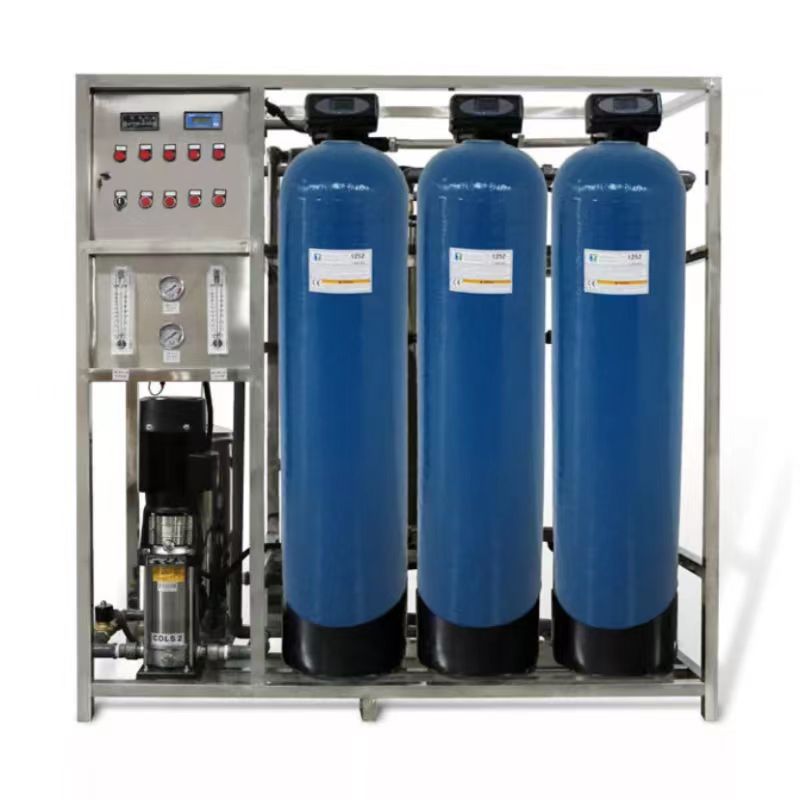Navigating Clarity: Factors to Consider When Choosing an RO System for Water Quality Concerns
2023-11-18
Introduction:
In the pursuit of clean and pure water, Reverse Osmosis (RO) systems emerge as stalwart guardians. However, not all RO systems are created equal, and selecting the right one for your specific water quality concerns requires a thoughtful approach. In this blog, we'll delve into the key factors that should be considered when choosing an RO system, ensuring that your quest for pristine water is met with precision and effectiveness.
1. Water Quality Analysis:
Begin by conducting a thorough analysis of your water quality. Identify the specific contaminants present, such as dissolved solids, heavy metals, bacteria, or chlorine. Understanding your water composition is the foundation for choosing an RO system tailored to your needs.
2. Contaminant Removal Efficiency:
Different RO systems may excel in removing specific contaminants. Consider the system's efficiency in removing the particular impurities that concern you the most. Look for systems with comprehensive filtration capabilities to address a broad spectrum of contaminants.
3. Water Pressure Requirements:
RO systems rely on water pressure to function optimally. Assess the water pressure in your location and choose an RO system that can operate effectively within that range. Some systems may come with built-in booster pumps to enhance performance in low-pressure environments.
4. Flow Rate and Tank Capacity:
Evaluate the flow rate of the RO system, which determines how much purified water it can produce per day. Consider your household's water consumption needs and select a system with an adequate flow rate. Additionally, assess the storage tank capacity to ensure a steady supply of purified water during peak usage times.
5. Membrane Quality and Size:
The quality and size of the RO membrane are crucial factors. High-quality membranes with smaller pores contribute to better filtration efficiency. Additionally, larger membranes may process more water, increasing overall system performance.
6. Ease of Maintenance:
Regular maintenance is essential for the long-term effectiveness of an RO system. Consider the ease of filter replacement and maintenance tasks. Opt for systems with user-friendly designs that simplify routine upkeep.
7. Water Wastage:
Assess the system's water efficiency, considering the ratio of purified water to wastewater. Some RO systems are designed to minimize water wastage, making them environmentally friendly and cost-effective in the long run.
8. pH Adjustment and Mineralization:
RO systems can sometimes result in water that is slightly acidic due to the removal of minerals. If desired, choose a system that includes pH adjustment or mineralization stages to enhance the taste and health aspects of the purified water.
9. Budget Considerations:
Establish a budget for your RO system investment. While cost is a factor, it's essential to balance it with the system's features and capabilities. Consider the long-term savings in terms of maintenance, water efficiency, and durability.
10. Certifications and Standards:
Look for RO systems that meet industry standards and certifications. NSF/ANSI certifications, for example, indicate that the system has undergone rigorous testing and meets specific performance criteria.
Conclusion:
Selecting the right RO system for your water quality concerns is a nuanced process that involves a careful examination of various factors. By understanding your water composition, assessing system capabilities, and considering factors like maintenance and efficiency, you can embark on a journey to choose an RO system that not only meets your needs but exceeds your expectations in delivering the clarity and purity you seek in every drop.



